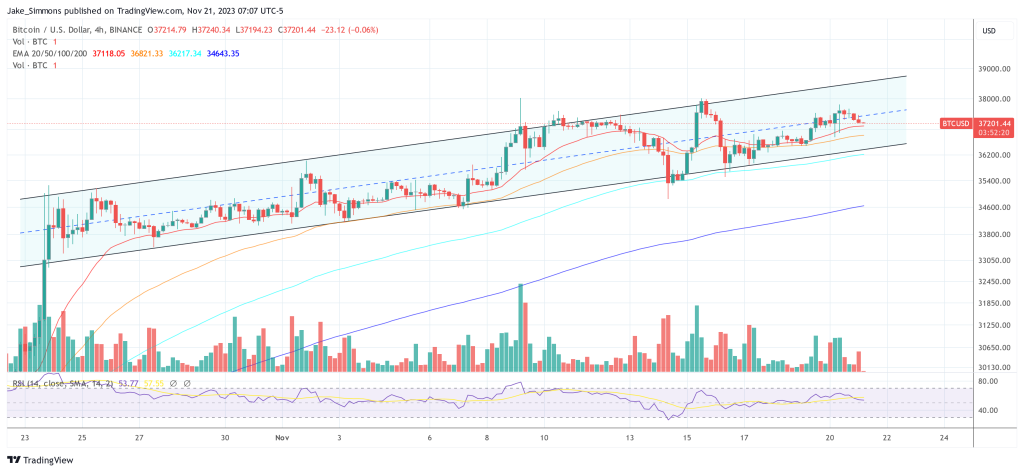In a detailed analysis, Will Clemente, an on-chain analyst and co-founder of Reflexivity Research, has presented a thought-provoking perspective on the Bitcoin price’s potential performance in a recessionary environment. His views challenge the widely held belief that BTC, as a ‘risk-on’ asset, would suffer in economic downturns, offering a nuanced understanding of its relationship with market liquidity and economic cycles.
Why Bitcoin May Rise During A Prolonged Recession
Clemente’s argument hinges on the understanding of BTC as a hedge against monetary debasement rather than a conventional asset tied to economic performance. He explained, “Bitcoin is a hedge against monetary debasement. It goes down when liquidity declines and goes up when liquidity rises.”
This perspective is crucial in understanding Bitcoin’s behavior post-December 2021 when it experienced a decline. According to Clemente, this was a direct result of reduced liquidity in the market, a scenario consistent with BTC’s nature as a monetary debasement hedge.
With current economic indicators pointing towards a reduction in inflation, Clemente suggests that the era of stringent monetary tightening might be waning, setting the stage for increased liquidity. Interestingly, he argues that a recession could actually be a catalyst for this increase in liquidity, thus creating a bullish environment for the BTC price.
“Bitcoin does not have cash flows and therefore is not tied to the economy necessarily, as again, it’s historically tied to liquidity,” he added, emphasizing the cryptocurrencies’ unique position in the financial ecosystem.
Addressing potential scenarios of sharp credit crunches like the one in March 2020, Clemente acknowledged that initial reactions might favor traditional safe havens like USD or treasuries over Bitcoin. However, he predicted that any such event would likely be followed by significant liquidity injections, leading to a rapid recovery for Bitcoin, resembling a V-shaped curve.
Liquidity More Important Than CPI
Reflecting on past misconceptions within the community, Clemente admitted that many, including himself, previously misunderstood BTC’s role as a hedge. “The big thing most Bitcoiners (including myself) got wrong in 2021 was the idea that BTC was a hedge against CPI and not liquidity. CPI lags liquidity,” he stated.
With the current decline in inflation, he expects a shift towards increasing liquidity, which he believes should positively influence Bitcoin’s value as a hedge against monetary debasement.
Clemente’s analysis also touched upon the broader market’s perception. In response to a critic’s claim that the market treats BTC as a high-beta risk asset, he emphasized the importance of examining the correlation between Bitcoin and liquidity trends.
He challenged skeptics to consider whether liquidity is poised to rise or fall in the coming months, asserting that the market’s behavior aligns with his analysis. “Go overlay Bitcoin with liquidity, then answer the question of whether liquidity is poised to rise or fall over the next 12 months from here. The market couldn’t agree more with me. All facts, no feelings. Study up,” he said.
In conclusion, Clemente’s comprehensive analysis provides a fresh lens through which to view BTC’s potential trajectory in a recession. By linking the price to liquidity trends rather than direct economic performance, he offers a compelling argument for why a recession could, counterintuitively, be beneficial for Bitcoin.
At press time, BTC traded at $37,201.







